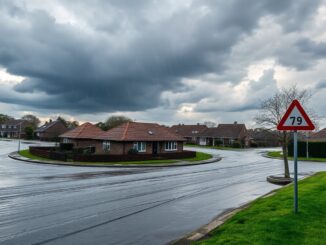A deep dive into whether the DRC-Rwanda deal can truly foster peace amid ongoing tensions.

Topics covered
The recent agreement between the Democratic Republic of the Congo (DRC) and Rwanda has sparked a blend of optimism and skepticism about its potential to foster lasting peace in a region often marred by conflict. In a world where peace deals are frequently celebrated yet rarely realized, we have to ask: can this agreement genuinely alter the narrative of conflict in Central Africa? This isn’t just a rhetorical question; it reflects the tough reality of peace processes in a geopolitical landscape filled with complexities.
Understanding the Business of Peace
To grasp the DRC-Rwanda deal, we need to dig into the underlying factors that have historically fueled tension between these nations. The shared border, abundant natural resources, and the presence of armed groups create a precarious environment where peace remains delicate.
The data reveals a concerning churn rate of conflict that often overshadows peace initiatives. Past reconciliation efforts have faltered, leaving communities disenchanted and governments skeptical.
To assess the potential success of this latest agreement, we must take a close look at key metrics such as the historical frequency of ceasefire violations and the levels of trust between the two nations.
The numbers reveal a sobering reality: diplomatic relations have swung like a pendulum, influenced by external pressures and internal turmoil. Recognizing this complex history is vital for any meaningful discussion about the future of peace in the region.
What We Can Learn from Past Successes and Failures
Case studies from the region show that peace deals often depend on the commitment of both parties to honor their agreements. In the past, initiatives aimed at fostering cooperation have crumbled under the weight of mistrust and political maneuvering. Take, for example, the 2009 peace accord between the DRC and various rebel factions; it initially held promise but ultimately fell short due to weak enforcement mechanisms and a lack of sustained international support.
Conversely, there are success stories where collaborative efforts, like joint economic projects, have effectively bridged divides. These examples underscore that while political agreements are crucial, they must be supplemented by initiatives that tackle the root causes of conflict and deliver real benefits to local communities. Without these components, the DRC-Rwanda deal risks becoming just another chapter in a long saga of unfulfilled peace promises.
Strategies for Sustainable Peace
For the DRC-Rwanda agreement to pave the way for true and sustainable peace, several practical strategies need to be prioritized. First off, robust monitoring and accountability mechanisms are a must. Both countries should commit to transparent reporting on the agreement’s progress, allowing for adjustments based on real-time data.
Furthermore, engaging local communities in the peace process is essential. Grassroots involvement can bolster trust and ensure that the needs of those most impacted by conflict are addressed. Initiatives that promote economic cooperation, such as cross-border trade agreements, can lay the groundwork for building lasting relationships. By focusing on economic interdependence, both nations can cultivate a vested interest in sustaining peace.
Takeaways for Stakeholders
In conclusion, while the DRC-Rwanda deal marks a significant stride toward peace, it’s crucial to approach it with a healthy dose of realism. Stakeholders must acknowledge that the path to peace is riddled with challenges, and success will demand ongoing commitment, transparency, and a focus on local needs. The lessons learned from previous agreements should guide us as we navigate the complexities ahead.
Ultimately, the big question remains: will this deal become a pivotal moment for peace in the region, or will it simply fade into the background as yet another missed opportunity? Only time will tell, but the commitment to learning from past failures and successes will be key to shaping a more peaceful future.




